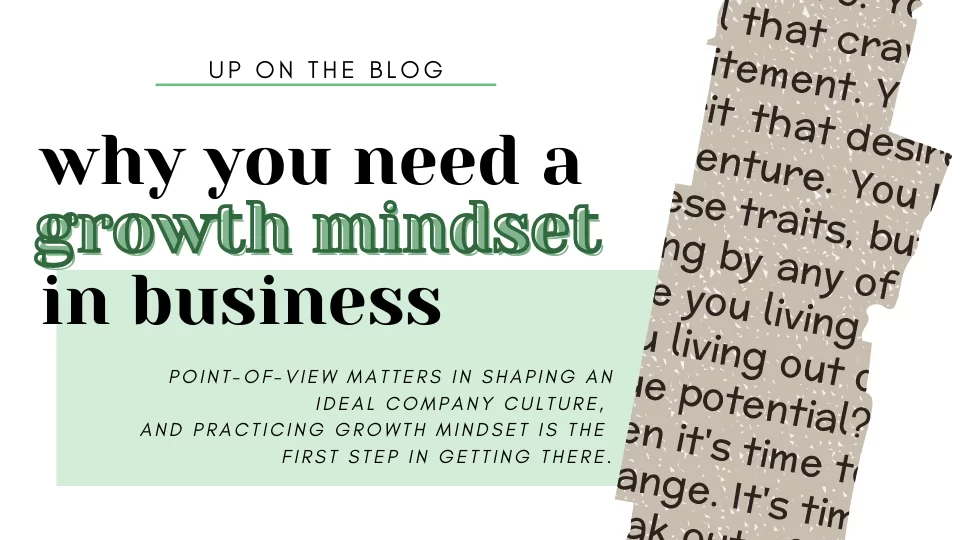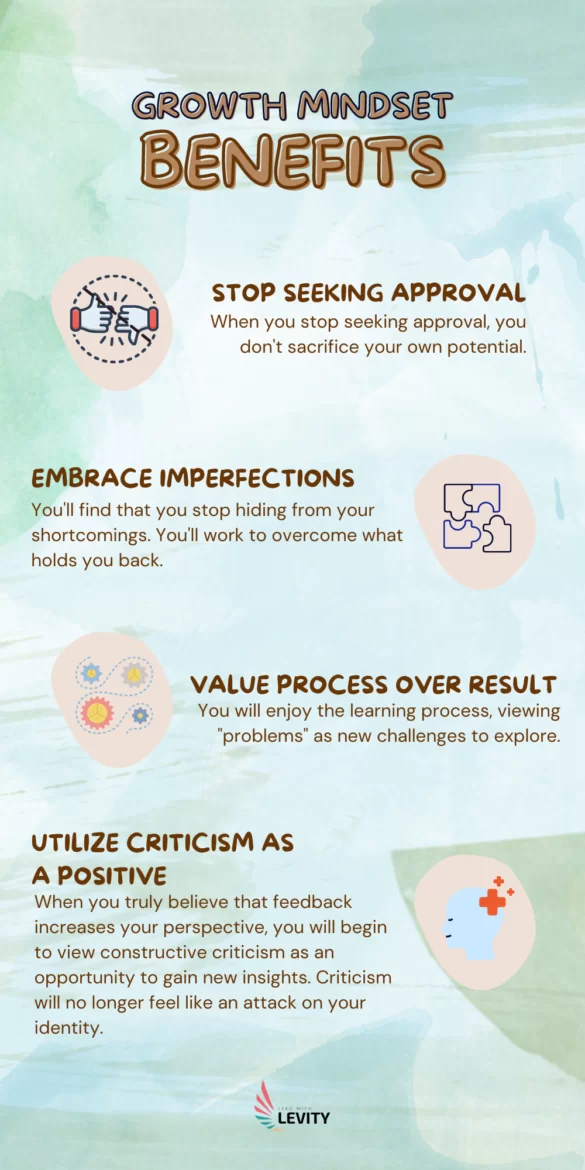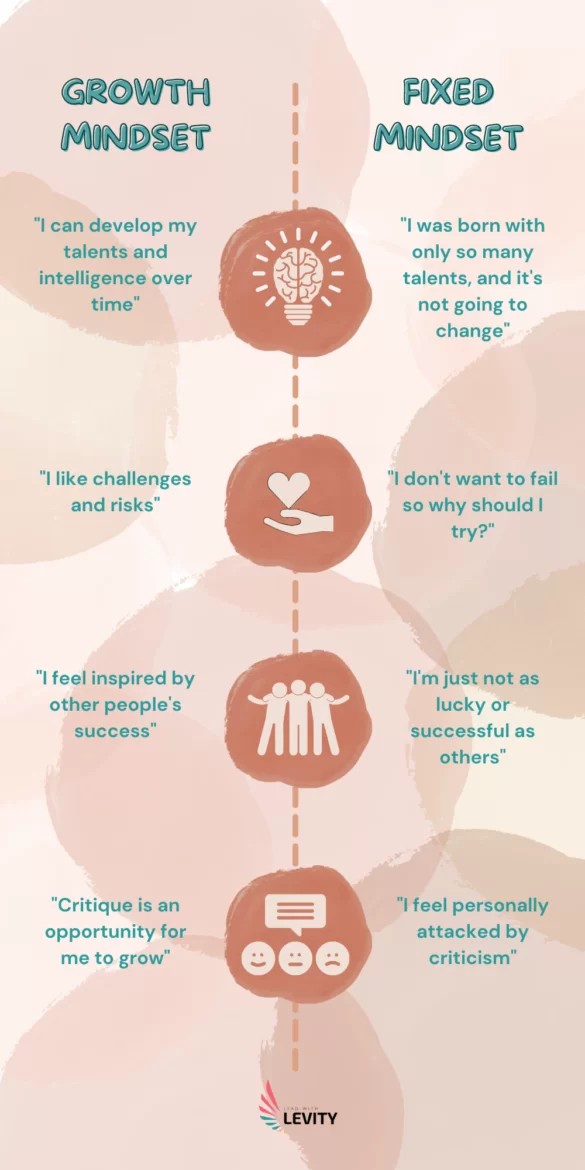
We often think that once we reach adulthood, we would have to let go of our childlike ways in learning, playing, and seeking fun in everything that we do. But play doesn’t have to stop even when we’re adults. Another common myth is the belief that adults are wise, mature, and fully-developed people. But it’s important to know that even our talents and abilities still continue to develop as long as we foster a growth mindset.
What is a Growth Mindset?
In defining people’s beliefs in their own talents, Carol Dweck, a psychologist from Stanford University, coined the term growth and fixed mindset. People who take on a growth mindset believe that they can enhance their abilities through learning while a fixed mindset is the belief that abilities are static and will not develop any further.
According to Dweck, no one can have a “pure” growth mindset. We all have a mixture of fixed and growth mindsets that evolve through time and experience. People have a tendency to revert to their fixed mindset “persona” when triggered by challenges. Yet, it is our own willingness to learn that helps us begin to overcome these problems.
There’s also a concept of a false growth mindset. It is when you acknowledge and say that you have a growth mindset when you don’t really understand what it is. For example, you take an admirable quality about yourself and you label it as a growth mindset. This also shows when you praise effort rather than process. It is also false in a sense that nobody really has a pure growth mindset since we all use a mixture of fixed and growth mindsets.
Here is Carol Dweck’s brief talk on the concept of “yet” and “not yet” in developing a growth mindset.
How does Growth Mindset Help You?
The Growth Mindset approach is widely used in an academic setting, where students face learning challenges. In a study led by special education teacher, Dr. Emily Rhew, on the effects of Growth Mindset on self-efficacy and motivation, results showed significantly higher motivation levels.
Not only does Growth Mindset help developing youth, but also adults in their work environment. Here are 4 of many known advantages of a growth mindset, according to Forbes.

There are many more advantages that come with having a growth mindset and identifying your own personal benefits can motivate you to foster a mindset that would help you become a better employee and leader.
Growth Mindset in the Workplace
Because we spend a big chunk of our time at work, we cannot avoid the occasional problem that creeps into our otherwise perfect schedules. However, what differentiates those who choose a growth mindset, is that they are open to feedback and believe in continuous improvement. They also embrace new challenges and input as motivation to work harder.
For employees to continuously develop a growth mindset, leaders have to promote it with encouragement, praise, and recognition for their efforts. This does not mean that leaders should excuse, overlook, or ignore poor performance. The goal is to provide an environment that helps employees see their role in exploring new possibilities. Even simple uplifting engagements can help employees to, in Dweck’s words, “capitalize on setbacks” which facilitates learning.
In the workplace, there can be a lot of fixed-mindset triggers that can bring out the fixed mindset persona. Triggers can make an employee fallback to insecurity and defensiveness, and these responses to triggers hinder growth and development.

To sum it up, everyone can fallback to a fixed mindset when struck with the right trigger. Developing a growth mindset is a commitment that can last a lifetime. If we want to foster a growth mindset, we will have to identify what triggers our fixed mindset persona, accept it and never give up on conquering it. This would lead to developing a solid culture in the workplace
Sources:
- Dweck, C. (2015). Carol Dweck revisits the growth mindset. Education Week, 35(5), 20–24.
- Dweck, C. (2016). What having a “growth mindset” actually means. Harvard Business Review, 213–226. https://leadlocal.global/wp-content/uploads/2016/12/Dweck-What-Having-a-%E2%80%9CGrowth-Mindset%E2%80%9D-Actually-Means-HBR.pdf
- le Cunff, A. (n.d.). From fixed mindset to growth mindset: the complete guide. Ness Labs. Retrieved December 2, 2021, from https://nesslabs.com/growth-mindset
- Rhew, E., Piro, J. S., Goolkasian, P., & Cosentino, P. (2018). The effects of a growth mindset on self-efficacy and motivation. Cogent Education, 5(1). https://doi.org/10.1080/2331186X.2018.1492337
- Schroeder, B. (2019, July 12). 12 Advantages Of A Growth Mindset That Could Accelerate Your Career. Forbes. Retrieved November 15, 2021, from https://www.forbes.com/sites/bernhardschroeder/2019/07/12/12-advantages-of-a-growth-mindset-that-could-accelerate-your-career/?sh=6ee16b4713f4
- Stanford Alumni. (2014, October 10). Developing a Growth Mindset with Carol Dweck [Video]. YouTube. https://www.youtube.com/watch?v=hiiEeMN7vbQ&ab_channel=StanfordAlumni

About the Author
Hello! I’m Christine Guzmani, a Communications and Marketing Specialist at Lead with Levity. I enjoy learning and writing about different communication strategies and all things fun at work. I am currently finishing my Bachelor’s degree in Communication.
